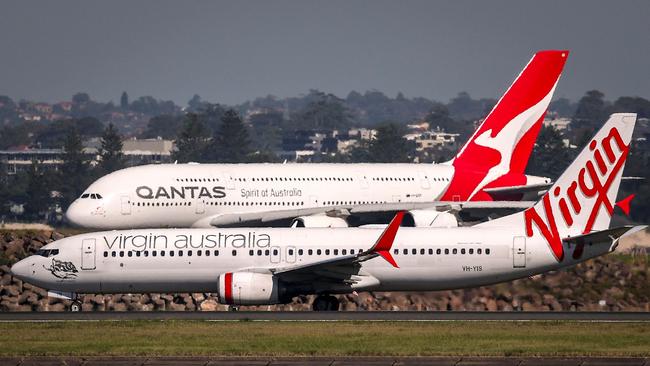
Virgin Australia’s private equity owners are believed to be leaning towards a smaller initial public offering where cornerstone investors are locked in, say sources, as part of its plans to list as a business that could be worth about $3bn.
The understanding is that the structure of a float will be more similar to that of the Guzman y Gomez listing last year rather than a deal with a large selldown and a big push towards retail investors and a large number of institutions in the market.
GYG shares were sold at $22 and are now worth about $31 with a $3.1bn market value after it sold down $335.1m and had a $2.2bn market value in a move that kept supply of shares tight and helped it perform well in the aftermarket.
A deal mimicking this structure could see Virgin sell between $500m and $700m through its IPO.
The understanding is that cornerstone investors, where a portion of the deal would be locked in up front with a select group of parties, was being pursued.
While conditions are ripe for an airline float, what with the price of Qantas shares soaring almost 80 per cent in the past year, the challenge will be the general sharemarket volatility, brought about through uncertainty around global trade tariffs being introduced by US President Donald Trump.
As a result, there’s been a cautious approach being taken by Virgin’s IPO campaign team, where they are downplaying the certainty of a deal happening, despite the steps being taken in the market.
Analysts have been briefed on Virgin in recent days, but there’s a potential they may not need to publish, and a listing may be still be up in the air.
Retail advisers such as Morgans, Ord Minnett, Shaw and Partners and Bell Potter have made submissions to Bain Capital as to why they should land a co-lead manager role for the $3bn-odd listing of Virgin Australia, likely by June.
The advisers spearheading the IPO campaign are Barrenjoey, Goldman Sachs, UBS and Reunion Capital.
As reported by DataRoom a week ago, they were meeting with investors around now.
Virgin Australia said it had made a record $439m in underlying earnings for the half year.
The Dave Emerson-led management team has already held a non-deal roadshow for its IPO in March.
The business was purchased by Bain Capital in 2020 after it collapsed, for $700m, when it had about $5.15bn of debt.
Already, Bain Capital has sold 25 per cent of Virgin Australia to Middle Eastern carrier Qatar Airways for about $750m, valuing the airline at $3bn.
Virgin Australia is the country’s second-largest carrier with 19 million passengers and 7000 staff.
The airline also has a domestic network of 66 routes and a targeted short-haul international network.
A valuable part of Virgin is its Velocity loyalty program – it is Australia’s third largest, with 11 million members and 80 partnerships.
The Australian reported that Qantas and Virgin now control 98 per cent of the market, with regional carrier Rex only 1.7 per cent after retreating from big city markets since its financial collapse.




To join the conversation, please log in. Don't have an account? Register
Join the conversation, you are commenting as Logout